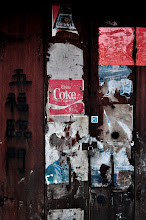MRCB group managing director Shahril Ridza Ridzuan said the conglomerate sees the REIT market as one of the many development funds of the future.
On another note, Shahril said the company expects better growth this year riding on its RM400 million property projects in Dubai, United Arab Emirates.
"We are focusing on Dubai but at the same time we are looking at other operations in the region as well," said Shahril.
He reiterated that the group, which also owns a power plant, is ready to propose to the Government with a transmission solution for power to be generated at the Bakun Dam and denied reports that it is eyeing a stake in Talam Corp Bhd.
Shahril said MRCB, which is an engineering, property, infrastructure, construction and power group, currently has an order book of RM1.8 billion and derives 20 per cent of its revenue from overseas.
On the "Sooka" project, Shahril said the leisure centre will be fully completed in the third quarter of this year with an occupancy rate of 85 per cent.
Spanning 180,000 sq feet, the six-storey oval-shaped Sooka can accommodate 40 retailers and has already roped in The Sweat Club, Gold's Gym, Secret Recipe, Nosh, Istmus and Kelantan Delights as part of its tenants.
